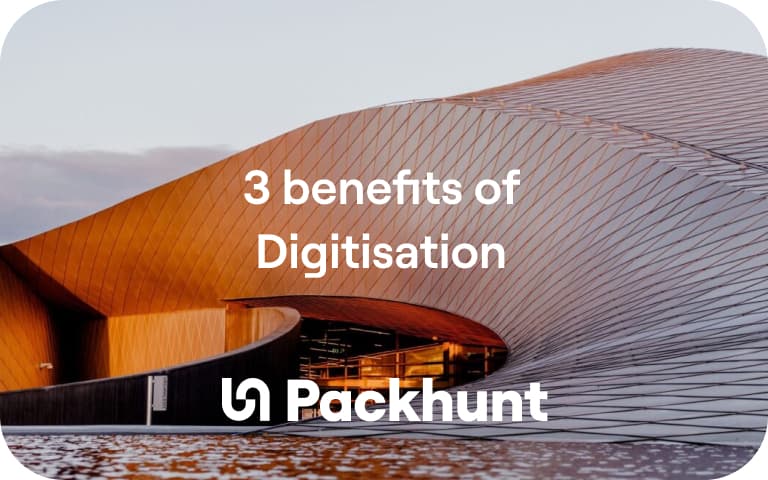Production
How Packhunt helped Walraven's parametric solutions processes.
Its products might be small, but make a massive difference in installations. From clamps to brackets, from struts to fasteners, from cable ties to roof supports. No matter the project's size or specifics, Walraven's products and expertise are up to the challenge.

Challenge:
To meet the increasing customer demands and grow its business, in 2018, Walraven began to search for a partner that could build a product configurator.
White Lioness technologies ended up being the best fit for Walraven's necessities and a fruitful partnership ensured to application of parametric solutions into Walraven's processes.
Grzegorz Adamski, Sales Director of Central & Eastern Europe at Walraven, and Sebastiaan Veldhuisen, a consultant hired by Walraven to manage the project, shared their take-aways from the collaboration.
Solution:
What made you choose to collaborate with the Packhunt team (former White Lioness technologies)?
Adamski: "We were searching for a software company that could build us a product configurator to digitize and optimize our sales process. We were already quite far in our supplier research, but we couldn't find the best match. Our CEO, Pelle van Walraven, met Jeroen Coenders [White Lioness technologies' CEO, ed.] at an exhibition and, after a short discussion, invited him to our headquarters to present a concept for Walraven's product configurator. That's how it all started."
Veldhuisen: "Walraven is a manufacturer with a vast product range. Developing a configurator can be challenging: it's a large amount of data that requires advanced configuration logic. The configurators we analyzed until that point weren't user-friendly enough for Walraven's technical experts and its customers. We wanted the freedom to add and customize products by ourselves, and not to depend on a third party. At our first meeting, White Lioness technologies' team showed us how they work with Grasshopper, a far more flexible and user-friendlier parametric logic for our product range. Already in their first proof of concept that they prepared for our rail system, we got a great insight into White Lioness technologies' parametric logic, and we thought that 'yes, this is exactly what we need!'"
What impact does digitisation have on product sales?
One particular area where digitisation is having a significant impact on product sales for factories is in the area of building materials. Digital solutions such as Building Information Modelling (BIM) are allowing factories to create highly detailed digital models of their building materials, which can be used by architects and contractors to plan and design buildings more efficiently.
This not only saves time and reduces costs but also improves the accuracy and quality of the final product.
In addition to BIM, digitisation is also enabling factories to create customised building materials tailored to the specific needs of each customer. With the help of 3D printing technology, factories can create highly detailed, customised building materials that meet the exact specifications of their customers.
Which not only improves the customer experience but also increases the likelihood of repeat business and positive referrals.
Thinking more sustainability, where to go with this?
Lastly, digitisation is also helping factories to reduce their environmental impact, which can be a significant selling point for customers who are environmentally conscious.
According to a recent poll we conducted, 83% of respondents believe that it is important for engineering firms to adopt sustainable practices. With the help of digital solutions such as energy management systems and sustainable manufacturing practices, factories can reduce their carbon footprint and promote sustainability.
This not only benefits the environment but also helps to improve the reputation of the factory, which can lead to increased sales and customer loyalty.
Sustainability is a widely recognised business principle that centres around the three key components of People, Planet, and Profit, which are also known as the triple bottom line or the 3Ps of sustainability. Businesses have the role of protecting and maximising the benefit of the 3Ps of sustainability.
Adding technologies that help you use the resources efficiently - save time, optimise processes, - help to reach profit goals and keep your talent of the company motivated and developing.
In conclusion, digitisation is having a significant impact on the building industry, and it is positively impacting product sales for factories.
By leveraging digital tools and solutions, factories can reach a wider audience, provide a more personalised experience, improve communication and collaboration, gather and analyse data, create highly detailed digital models, customise building materials, and reduce their environmental impact. With these benefits, it is clear that digitisation is the way forward for factories in the building industry.
Discover Packhunt for Factories
Packhunt for Factories
Digitising your factory can help to revolutionise your sales. Packhunt for Factories is an online configurator solution catered to factory & construction supply chains.
It is the backbone of selling, designing, engineering, and producing for the building industry online. It automates product logic and customer journey in order to sell, design, engineer, produce, assemble and organise the logistics of (assembled) products. It has proven to digitally transform the sales processes (generating the "perfect quote"), automate the workload and shorten tasks from weeks to minutes.

